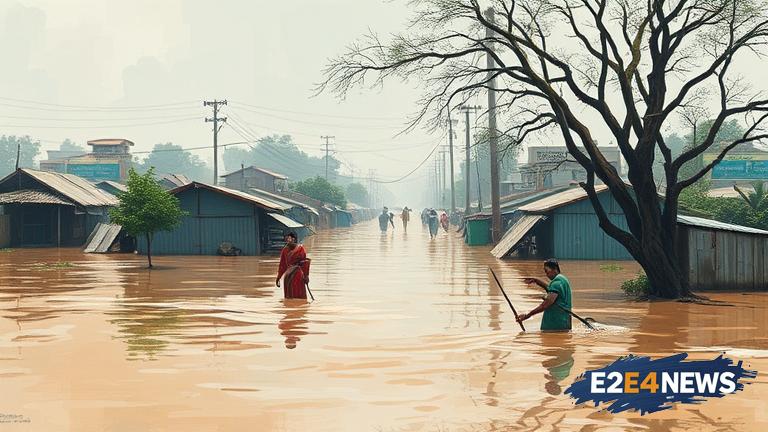Pakistan has been ravaged by floods in recent years, with the frequency and severity of these disasters increasing due to climate change. Experts are now calling for a shift in focus from relief efforts to adaptation measures to help the country better prepare for and respond to these events. The floods have caused widespread destruction, displacing thousands of people and damaging infrastructure, homes, and crops. The impact of the floods is not limited to the immediate damage, as they also have long-term effects on the environment, economy, and human health. Climate change is exacerbating the problem, with rising temperatures and changing precipitation patterns leading to more frequent and intense flooding. The Pakistani government has been criticized for its response to the floods, with many arguing that more needs to be done to prepare for and prevent these disasters. Experts are urging the government to invest in adaptation measures, such as flood-resistant infrastructure, early warning systems, and climate-resilient agriculture. These measures can help reduce the impact of floods and prevent the loss of life and property. Additionally, experts are calling for a greater focus on climate change mitigation efforts, such as reducing greenhouse gas emissions and transitioning to renewable energy sources. The international community also has a role to play in supporting Pakistan’s efforts to adapt to climate change and reduce the impact of floods. This can include providing financial and technical assistance to support adaptation measures and climate change mitigation efforts. The World Bank and other international organizations have already provided significant funding to support Pakistan’s flood relief efforts, but more needs to be done to address the root causes of the problem. The Pakistani government has also launched several initiatives to address the impact of climate change, including the development of a national climate change policy and the establishment of a climate change ministry. However, more needs to be done to implement these policies and ensure that they are effective in reducing the impact of floods and other climate-related disasters. The private sector also has a role to play in supporting Pakistan’s efforts to adapt to climate change, through investments in climate-resilient infrastructure and technologies. Furthermore, civil society organizations and community groups can play a critical role in raising awareness about the impacts of climate change and promoting adaptation measures at the local level. Overall, a comprehensive and coordinated approach is needed to address the impact of floods in Pakistan, one that involves government, international organizations, the private sector, and civil society. This approach must prioritize adaptation measures, climate change mitigation efforts, and the development of climate-resilient infrastructure and technologies. By working together, it is possible to reduce the impact of floods and other climate-related disasters in Pakistan and promote a more sustainable and resilient future for the country. The floods in Pakistan are a wake-up call for the international community, highlighting the need for urgent action to address the impacts of climate change. The country’s experience can serve as a model for other countries facing similar challenges, demonstrating the importance of adaptation measures and climate change mitigation efforts in reducing the impact of disasters. In conclusion, the floods in Pakistan are a major concern, and experts are urging a shift from relief to adaptation measures to mitigate the impact of these disasters. The government, international organizations, private sector, and civil society must work together to address the root causes of the problem and promote a more sustainable and resilient future for the country.
